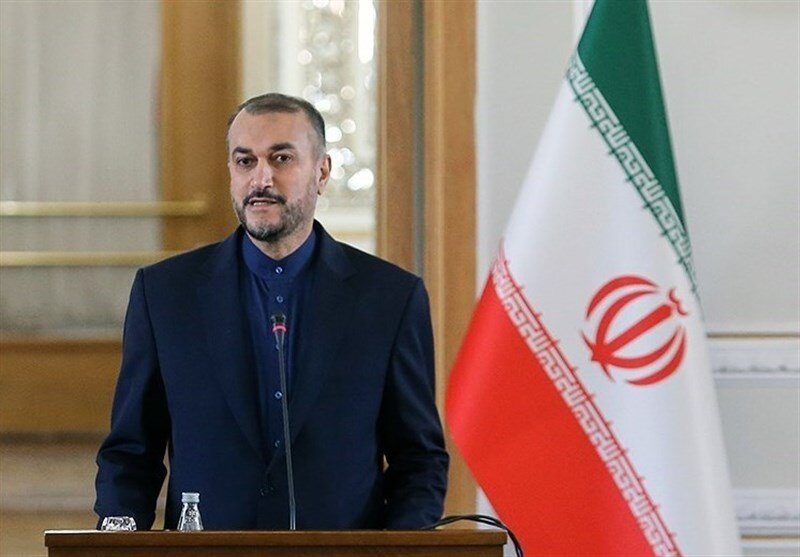Iran FM: Saudi Arabia must decide on reopening embassies

TEHRAN — Iranian Foreign Minister Hossein Amir Abdollahian announced on Monday that a reopening of embassies in Tehran and Riyadh is dependent on a decision by Saudi Arabia.
Speaking at the closing ceremony of the National Conference on Iran and Neighbors, Amir Abdollahian also said that Iran welcomes a new round of talks with Saudi Arabia.
“We have left the path open for Saudi Arabia. Whenever Saudi Arabia decides to return its diplomatic relations with Iran to normal, we welcome a reopening of embassies and the return of relations to normal and even development of relations with Saudi Arabia. We are pleased that three of our diplomats were stationed in Jeddah a few days ago.”
Noting that the ball is in Riyadh’s court, he said, “Saudi Arabia must now decide when to open the embassies of the two countries. We welcome the new round of talks, and we would also like to point out that long talks do not necessitate a return to normal relations alone, but a political decision. We in the government have decided that Saudi Arabia can take the necessary steps to restore relations with Iran whenever it reaches a conclusion.”
Commenting on the Yemen crisis, the foreign minister asked Saudi Arabia and the UAE to end the war in Yemen.
“These days, something is happening in Yemen. What is between Yemen and some of its neighbors and countries participating in military operations is an internal Yemeni issue. Iran has presented a four-point political plan at all stages since the beginning of the Yemeni crisis and has followed its plan,” Amir Abdollahian said, pointing to Iran’s initiative to end the war in Yemen.
“We are concerned about the escalation of the war and call on Saudi Arabia and the United Arab Emirates to take a political and constructive approach to end the siege and end the war and enter into the Yemeni-Yemeni dialogue,” he reiterated, warning that “continuation of such a situation is not in the interest of the region.”
'We don’t support a regional member in Vienna talks, but we keep neighbors informed’
The foreign minister went on to say that the Iranian government’s policy is to keep the neighbors informed about the Vienna talks intended to revive the 2015 nuclear deal.
“In all stages of the negotiations, we have tried to keep them (the neighbors) informed of what is going on between us and the five countries, either at the level of the ambassador of neighboring countries in Tehran or by the visit of political deputies and my visits to neighboring countries. We are reaching a point in our technical negotiations that will be saturated in the not-too-distant future, and we have to make a political decision,” he added.
"We do not welcome the idea of adding new members from the region to the talks, but we keep our neighbors informed," he reiterated.
Iran’s top diplomat went on to criticize the European countries’ behavior, saying that when it comes to sanctions, they link the matter to the United States, but when it comes to the nuclear issues, they say that this is “our area of concern”.
Amir Abdollahian also did not rule out the possibility of direct negotiations with the United States in Vienna, saying, “The United States sends messages calling for direct talks with us. Our talks with the United States are through (European Union’s Enrique) Mora and one or two JCPOA member states in Vienna. We did not have any direct negotiations (with the U.S.) at all. However, if we reach a stage in the negotiation process where reaching a good agreement requires having a dialogue with the United States at some level, we will not ignore it.”
